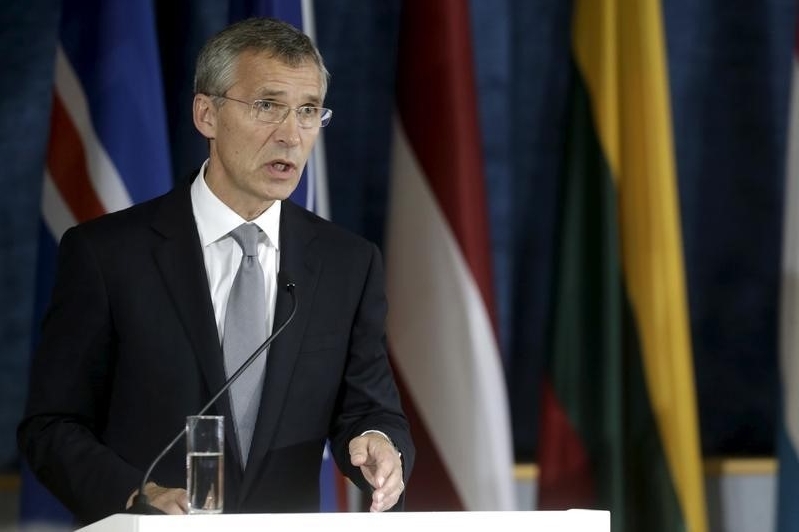
LVIV, Ukraine (Reuters) - NATO chief Jens Stoltenberg said on Monday an ebb in violence in eastern Ukraine was not enough to bring peace and demanded Russia withdraw heavy weapons the alliance accuses it of providing in support of separatists.
Ukrainian diplomats said Stoltenberg's two-day visit, his first to Ukraine as NATO Secretary-General, held strong symbolic importance for the country in its drive for Western integration in the face of a pro-Russian rebellion in eastern territories.
With a troubled peace plan for the Ukrainian conflict nearing its year-end deadline, Stoltenberg said the drop in fighting since the start of September was encouraging but called it fragile and far from sufficient.
"The heavy weapons are still there ... they continue to support the separatists," Stoltenberg told reporters before inaugurating joint disaster management exercises between Ukraine and NATO countries near the western Ukrainian city of Lviv.
Russia denies Western charges it has provided the pro-Russian rebels, who launched a rebellion in April last year in the Luhansk and Donetsk regions, with arms and troops.
While violence is at its lowest point since a ceasefire was signed in Minsk seven months ago, Western diplomats say the 11-point peace plan is far from fully implemented. Stoltenberg said monitors still did not have proper access to the conflict zone.
With EU leaders distracted by Europe's worst migrant crisis in decades, the former Norwegian prime minister is trying to keep alive the peace accord signed with Russia, while reassuring Ukraine of the Western military alliance's full support.
'THE FINAL COUNTDOWN'
Flying by helicopter over Ukraine, Stoltenberg stressed what he called the non-military nature of the joint exercises despite excitement among Ukrainian officials and a brass band playing the 1980s hit "The Final Countdown" as activities got under way.
NATO officials also said there was no plan for Ukraine to sign a new military doctrine identifying Russia as an aggressor on Tuesday in Kiev, despite an initial plan to do so according to Ukrainian diplomats.
Still, speaking from the military base where exercises took place, Ukrainian President Petro Poroshenko said he hoped that Monday's exercises with a host of NATO nations - focusing on de-mining, forest fires and a simulated blast at a factory - could lead the way to deeper defense cooperation.
Former president Viktor Yanukovich was pressed from office by street protests last year - events described by the Kremlin as a coup - after moving the country closer to Moscow and eschewing a partnership deal with the EU. The current pro-Western leadership reinstated EU and NATO membership as an eventual aim after Russia's annexation of Crimea.
Ukraine had dropped its bid to join NATO in 2010 to answer Russian concerns, but now says membership is the only way to protect its territory.
"We consider the door (to NATO) is open," Poroshenko told a news conference, although he said Ukraine was not ready to join.
Russia opposes any expansion of NATO to former communist areas of eastern and southeastern Europe, part of a battle for influence between Brussels and Moscow that lies at the heart of the conflict in Ukraine.
(Additional reporting by Richard Balmforth in Kiev and Alastair Macdonald in Brussels; editing by Ralph Boulton)







